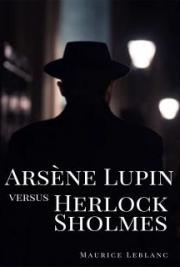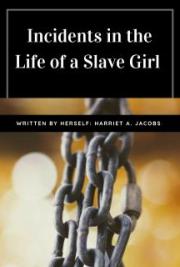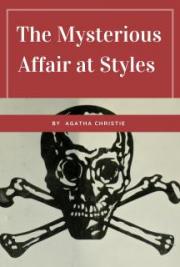Chapter 22
The Bishop and Catherine, a few weeks later, walked side by side up the murky length of St. Pancras platform. The train which they had come to meet was a quarter of an hour late, and they had fallen into a sort of reminiscent conversation which was not without interest to both of them.
"I left Mr. Stenson only an hour ago," the Bishop observed. "He could talk about nothing but Julian Orden and his wonderful speeches. They say that at Sheffield and Newcastle the enthusiasm was tremendous, and at three shipbuilding yards on the Clyde the actual work done for the week after his visit was nearly as much again. He seems to have that extraordinary gift of talking straight to the hearts of the men. He makes them feel."
"Mr. Stenson wrote me about it," Catherine told her companion, with a little smile. "He said that no dignity that could be thought of or invented would be an adequate offering to Julian for his services to the country. For the first time since the war, Labour seems wholly and entirely, passionately almost, in earnest. Every one of those delegates went back full of enthusiasm, and with every, one of them, Julian, before he has finished, is going to make a little tour in his own district."
"And after tomorrow," the Bishop remarked with a smile, "I suppose he will not be alone."
She pressed his arm.
"It is very wonderful to think about," she said quietly. "I am going to try and be Julian's secretary - whilst we are away, at any rate."
"It isn't often," the Bishop reflected, "that I have the chance of a few minutes' quiet conversation, on the day before her wedding, with the woman whom I am going to marry to the man I think most of on earth."
"Give me some good advice," she begged.
The Bishop shook his head.
"You don't need it," he said. "A wife who loves her husband needs very few words of admonition. There are marriages so often in which one can see the rocks ahead that one opens one's prayer-book, even, with a little tremor of fear. But with you and Julian it is different."
"There is nothing that a woman can do for the man whom she loves," she declared softly, "which I shall not try to do for Julian."
They paced up and down for a few moments in silence. The Bishop's step was almost buoyant. He seemed to have lost all that weary load of anxiety which had weighed him down during the last few months. Catherine, too, in her becoming grey furs, her face flushed with excitement, had the air of one who has thrown all anxiety to the winds.
"Julian's gift of speech must have surprised even himself," the Bishop remarked. "Of course, we always knew that 'Paul Fiske', when he was found, must be a brilliant person, but I don't think that even Julian himself had any suspicion of his oratorical powers."
"I don't think he had," she agreed. "In his first letter he told me that it was just like sitting down at his desk to write, except that all the dull material impedimenta of paper and ink and walls seemed rolled away, and the men to whom he wished his words to travel were there waiting. Of course, he is wonderful, but Phineas Cross, David Sands and some of the others have shown a positive genius for organisation. That Council of Socialism, Trades Unionism, and Labour generally, which was formed to bring us premature peace, seems for the first time to have brought all Labour into one party, Labour in its very broadest sense, I mean."
"The truth of the matter is," the Bishop pronounced, "that the people have accepted the dictum that whatever form of republicanism is aimed at, there must be government. A body of men who realise that, however advanced their ideas, can do but little harm. I am perfectly certain - Stenson admits it himself - that before very long we shall have a Labour Ministry. Who cares? It will probably be a good ministry - good for the country and good for the world. There has been too much juggling in international politics. This war is going to end that, once and for ever. By the bye," he went on, in an altered tone, "there is one question which I have always had in my mind to ask you. If I do so now, will you please understand that if you think it best you need not answer me?"
"Certainly," Catherine replied.
"From what source did you get your information which saved us all?"
"It came to me from a man who is dead," was the quiet answer.
The Bishop looked steadily ahead at the row of signal lights.
"There was a young foreigner, some weeks ago," he said "a Baron Hellman - quite a distinguished person, I believe - who was discovered shot in his rooms."
She acquiesced silently.
"If you were to go to the Home Office and were able to persuade them to treat you candidly, I think that you could discover some wonderful things," she confided. "I wish I could believe that the Baron was the only one who has been living in this country, unsuspected, and occupying a prominent position, who was really in the pay of Germany."
"It was a very subtle conspiracy," the Bishop remarked thoughtfully, "subtle because, in a sense, it appeared so genuine. It appealed to the very best instincts of thinking men."
"Good has come out of it, at any rate," she reminded him. "Westminster Buildings is now the centre of patriotic England. Labour was to have brought the war to an end - for Germany. It is Labour which is going to win the victory - for England."
The train rolled into the station and rapidly disgorged its crowd of passengers, amongst whom Julian was one of the first to alight. Catherine found herself trembling. The shy words of welcome which had formed themselves in her mind died away on her lips as their glances met. She lifted her face to his.
"Julian," she murmured, "I am so proud - so happy."
The Bishop left them as they stepped into their cab.
"I am going to a mission room in the neighbourhood," he explained. "We have war talks every week. I try to tell them how things are going on, and we have a short service. But before I go, Mr. Stenson has sent you a little message, Julian. If you go to your club later on to-night, you will see it in the telegrams, or you will find it in your newspapers in the morning. There has been wonderful fighting in Flanders to-day. The German line has been broken at half a dozen points. We have taken nearly twenty thousand prisoners, and Zeebrugge is threatened. Farther south, the Americans have made their start and have won a complete victory over the Crown Prince's picked troops."
The two men wrung hands.
"This," Julian declared, "is the only way to Peace."







